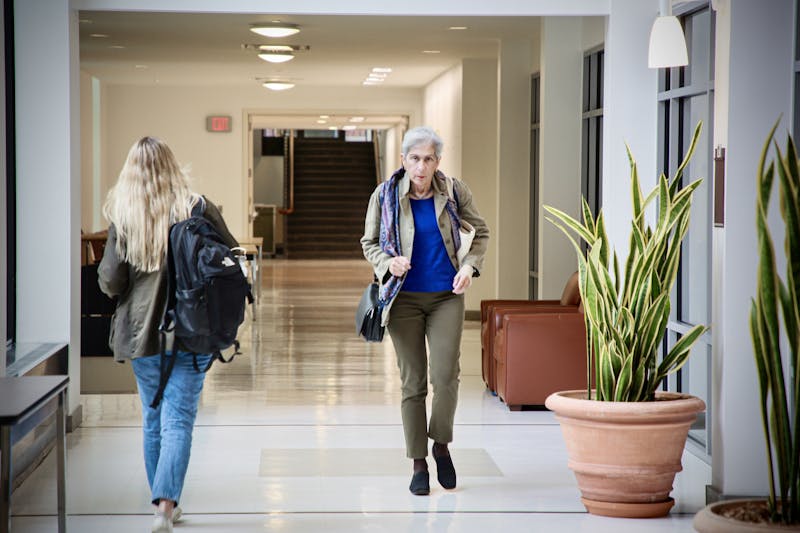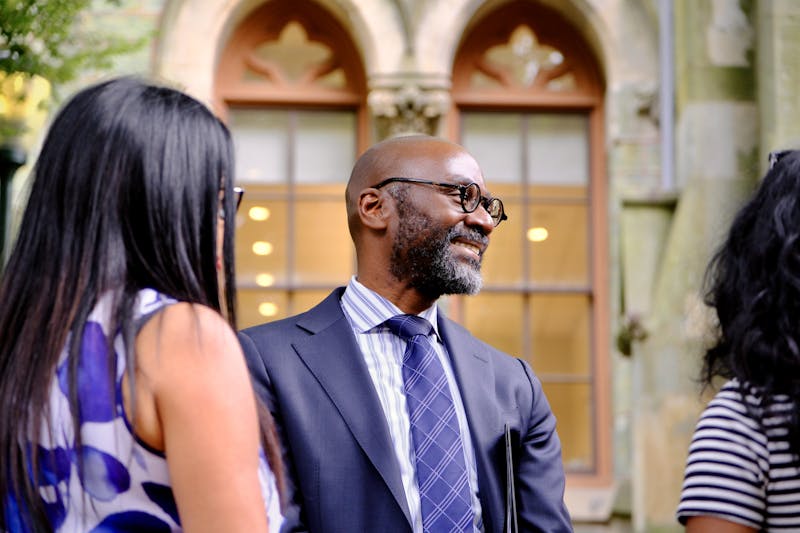When College freshman Clare Foran answers her geology professor's questions, it's not by raising her hand.
She keys in the answer on a 'clicker' she brings to class.
The electronic response pad, which all students in the class are required to purchase, transmits student answers to a computer which collates all the responses and displays them on a screen.
This technology, which has been implemented in six or seven classes, according to Sociology professor Melissa Wilde, is catching on with some professors as a helpful teaching tool.
Geology professor Fred Scatena uses the clickers to take attendance, conduct opinion polls and ask short multiple choice questions on class material in his class of 160 students.
In a class of 100 or more students, professors agree that engaging students and eliciting participation is a definite challenge.
The response pads help because they force everyone from the shy to the loud to take part in the class.
Another advantage of this technology is the increased ease with which quizzes can be taken and graded.
Responses from students can be automatically scored, eliminating the labor of grading quizzes.
The pop quizzes work well in large classes because it encourages attendance.
Scatena said that once technological glitches - accurately transferring quiz scores from class to Blackboard - were ironed out, student feedback on the use of clickers has been positive.
"Like any new technology, it takes a while for people to get used to," Wilde said.
The clicker also has the added benefit - or detriment, for some - of forcing students to keep up with their readings, College junior Melinda Angeles said.
Wilde uses the technology to survey her students on general sociological questions to compare the results from the class with external data. If any discrepancies arise from the two sets of data, students can learn how to analyze those differences.
"It's [a way] to get students to do sociology," during lectures, she said.
Wilde also used the data to illustrate her points, Angeles said, which makes the lecture material resonate more with students.
It also allows professors to receive constant, instantaneous feedback on whether students have truly grasped the concept.
However, clickers do have the disadvantage of presenting an added cost on top of the required course texts - $40 with a $20 rebate for returning it to the bookstore at the end of the semester.
Still, she said it is enlightening to see the responses of her classmates on the screen and to compare them to her own.
"You can kind of see if you are thinking along the same lines," as other students, she added.
The Daily Pennsylvanian is an independent, student-run newspaper. Please consider making a donation to support the coverage that shapes the University. Your generosity ensures a future of strong journalism at Penn.
DonatePlease note All comments are eligible for publication in The Daily Pennsylvanian.







